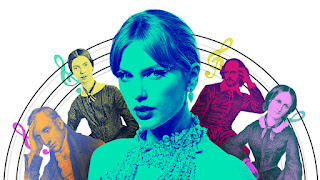Aarya Patil Week 8 : The Evolution of the American Language
American English, is a vibrant language, with several different strands, which showcases its evolution. It presents the combination of varying influences, each one leaving a clear mark on the language we speak today.
The American language may seem weird for new learners. As one article points out, “the spelling doesn’t match the pronunciation.” Imagine coming to America as an immigrant, and having to learn this language. It would seem like an almost impossible task due to all the grammar rules, ironic spellings, and homophonic words. However, it is all these quirks that make the American English language as unique as it is. According to a 2023 survey, English is the number one language spoken in the world!
As we are taking ourselves back to the 1920s in class, the jazz era covered by F. Scott Fitzgerald's "The Great Gatsby," showcases a much different language than many of us have heard before. The Roaring Twenties introduced a vivid array of phrases and terms that were used at jazz clubs and speakeasies (since alcohol was banned during this time). I find it fascinating that we use some of these phrases and words to this day, such as “crush” and “keen”. During this period, American English had a transformation. The aftermath of World War I and the cultural dynamics of the Jazz Age generated new expressions, some of which we can see in the book, “The Great Gatsby.” The 1920s, as depicted in "The Great Gatsby," serves as a time capsule, which allows us to go back in time and experience the Jazz Age as well.
Additionally, the Shakespearean language, with its eloquence and poetic behavior, played a large role in the evolution of the English language. The plays and poems of William Shakespeare not only engaged audiences in his time but also connected with people across centuries, leaving its mark on the English language. His coined phrases and innovative use of words have worked their way into our language. Expressions like "break the ice," "wild-goose chase," or "heart of gold" originated from Shakespeare. Moreover, as a Taylor Swift fan, I have seen online quizzes comparing Shakespearean verses to Taylor Swift lyrics. The juxtaposition of these seemingly contrasting artists creates a sense of irony that resonates with fans of both. It's a tribute to Swift's lyrical capabilities and how her deep verses draw comparisons to the poetic depth of Shakespeare's pieces. This showcases the universal themes portrayed in both artists' words but also highlights the power of language to captivate hearts and minds across generations.
20 Most Spoken Languages in the World in 2023 | Berlitz.
Slang From The 1920s That Needs To Make A Comeback
Shakespeare And Modern English
Taylor Swift is a real poet, Shakespeare expert says as he compares her to the Bard



Hi Aarya! This was a very interesting blog to read. I really like how you divided your blog into different sections making it easier for people to read and understand your blog. I agree with the fact that the English language would be hard for immigrants to learn, we do not notice all the strange grammar rules since we are used to it. It is impressive how you brought up the Jazz Age in the 1920s as shown in F. Scott Fitzgerald's "The Great Gatsby," as that is definitely a very good example of how the American language evolved so much over the years. As I was looking over the list of slang words they used, I also noticed a lot of similar slang we still use to this day while others have been dropped. Lastly, I really liked how you brought up the juxtaposition between Taylor Swift and Shakespeare. As another Taylor Swift fan, I agree a lot of her lyrics have poetic depth similarly to Shakespeare. Overall, I really enjoyed reading your blog. Great job!
ReplyDeleteHi Aarya! It was really cool how you tied the entire Gatsby unit and its slang into your blog, it made it a lot more relatable and interesting to read. I also really like the picture that says "Giggle Water," I think that's a neat addition to the blog post. It's interesting how many modern terms we use today are influenced by Shakespeare, especially considering the fact that the English he wrote and spoke in sounds like almost an entirely different language. I was shocked when you said there were similarities between Shakespeare and Taylor Swift in terms of their language, and I wish you had elaborated on that further because I'm still curious as to why and how that is. Is that a common occurrence amongst modern singers and songwriters or is that specifically for Taylor Swift?
ReplyDeleteHI Aarya! It was awesome how you incorporated our current reading of " The Great Gatsby" into your
ReplyDeleteblog. I do agree that the English language is hard to learn, especially after spending a day working on transitioning between Spanish and English; Spanish follow rules, English doesn't. Initially I was confused whrn you compared Shakespeare and Taylor swift in terms of the language used. I do wish you deled deeper into that and elaborated between the two. Your blog was great to read, and I love your addition of the picture of "Giggle Water."